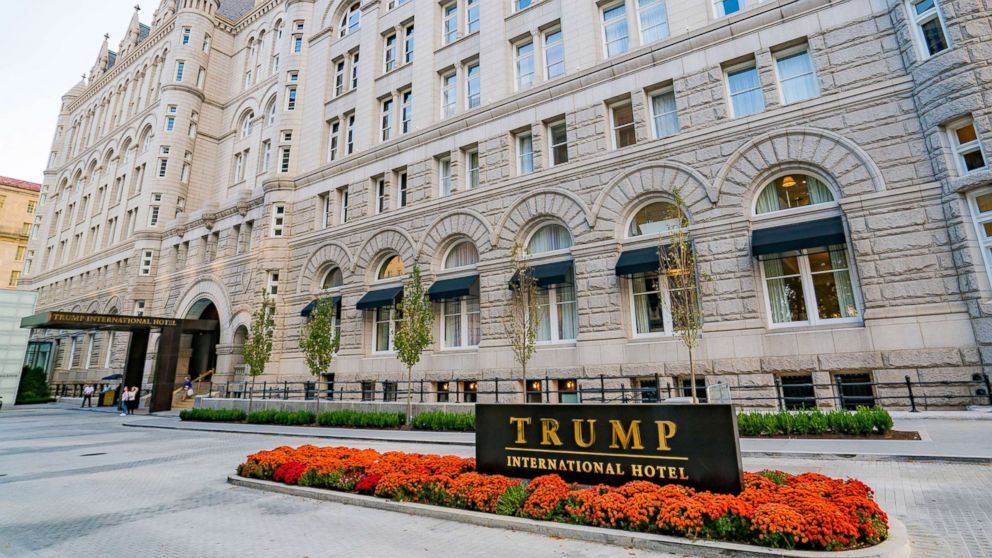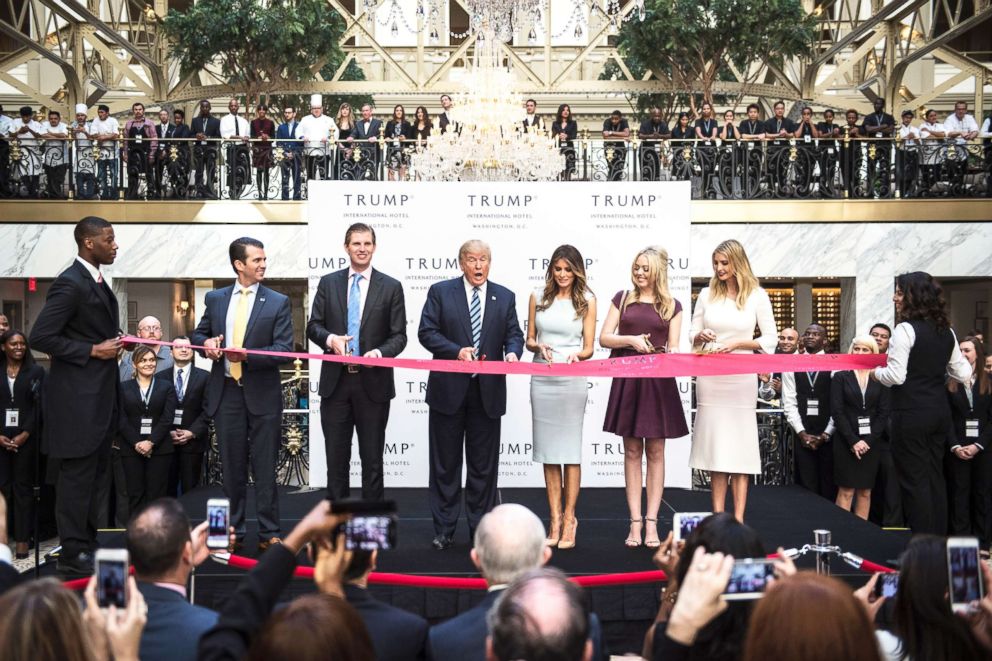Maryland, DC argue Trump has accepted illegal foreign gifts
The Trump International Hotel in Washington, D.C., opened in the fall of 2016.

A federal judge in Maryland Monday appeared receptive to arguments that President Donald Trump received what amount to illegal gifts from foreign governments in the form of payments to his Trump International Hotel in the nation’s capital.
Judge Peter Messite repeatedly challenged the Justice Department’s attorney, Brian Shumate, who represented the president, questioning his narrow definition of a foreign “emolument,” which is the term used in the Constitution to describe an improper gift.
The Constitution prohibits any federal office holder, including the president, from accepting any payment or benefit from a state or foreign government.
“You have foreign governments staying at Trump International, and they’re going there spending money precisely to get in good with him, which is a way to - in effect - influence him,” the judge said, asking the government's attorney, “So the potential to look favorably upon is not enough to be an emolument?”
Shumate responded that the foreign payments alone were not sufficient to be classified as an “emolument.”
“Unilateral action to try to curry favor wouldn’t be enough,” Shumate said of the business involving the Trump property,“because there is not a reciprocal exchange.”
Maryland and the District of Columbia brought the lawsuit, alleging that local businesses have suffered as a result of the president’s decision to permit his family business to do business with foreign customers. Defining the intent of the prohibition in the Constitution was at the heart of the more than two-hour hearing on a motion to dismiss the suit.

“Our definition of emolument is a profit, gain or advantage,” Stephanie Litos, an attorney representing the attorney general of the District of Columbia, said in arguing for a much broader definition, adding, “The purpose of the clause is to prevent corruption or the appearance of corruption.”
The government’s attorneys counter that Trump has done nothing different from past presidents. Under the plaintiff’s definition, they argued, President Barack Obama would have accepted foreign emoluments every time someone overseas bought one of his books.
“If (the plaintiff’s) definition is correct,” Shumate continued, “Then no public official could own stocks, bonds, and none could take a tax deduction from the federal government...The implications of the plaintiff's definition are simply staggering and should be rejected.”
The plaintiff’s attorney conceded that Obama may have been in violation, but no one ever challenged him on it.
While a judge's questioning isn’t necessarily predictive of his rulings, Messite, a Clinton appointee and 25-year veteran of the bench, appeared inclined toward the arguments from Maryland and the District. He repeatedly returned to the idea that political leaders should remain free from even the appearance of corruption. “Isn’t the key consideration that there is potential for influence?” he asked at one point.
Messite said he would rule “by the end of July,” noting that there is “no spot-on precedent” for this case, saying that was “quite an honor” to hear the case.




